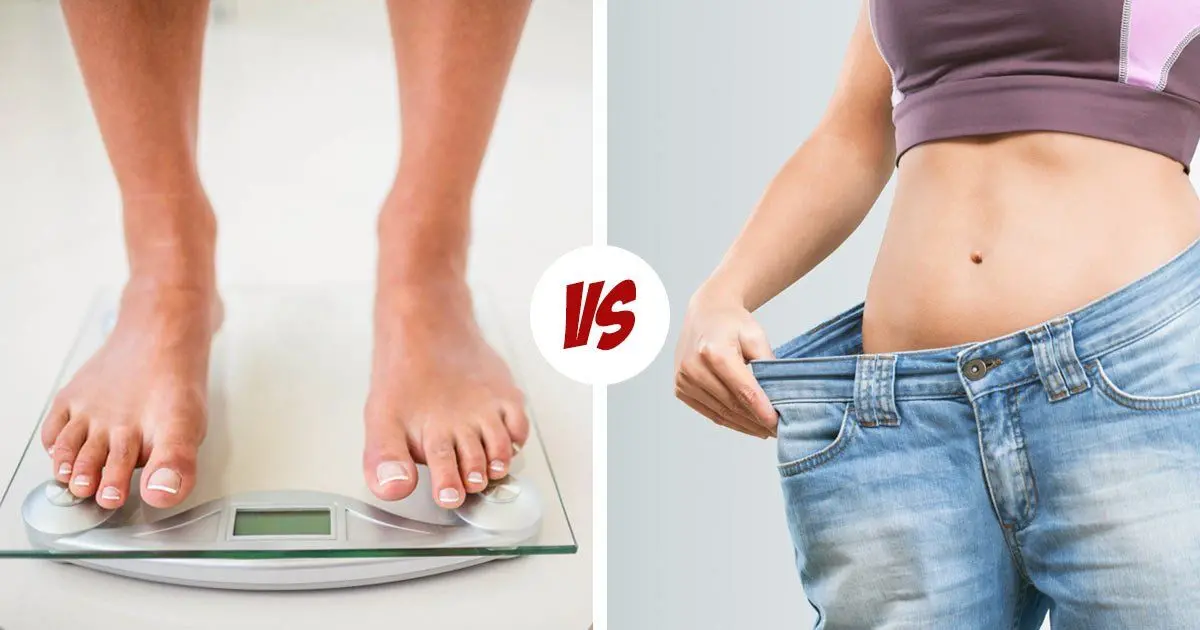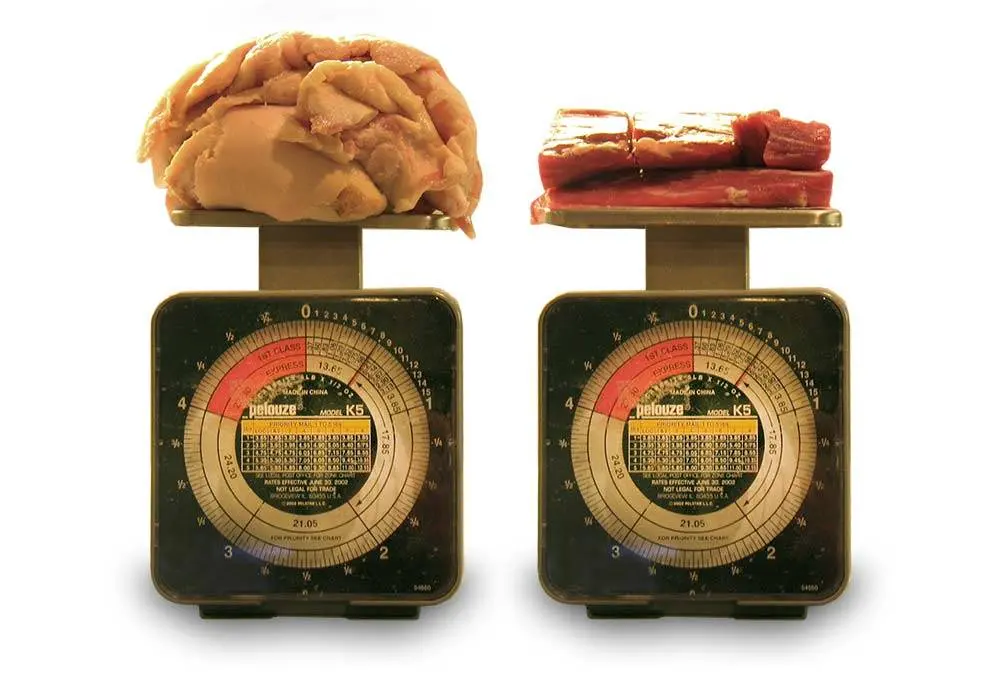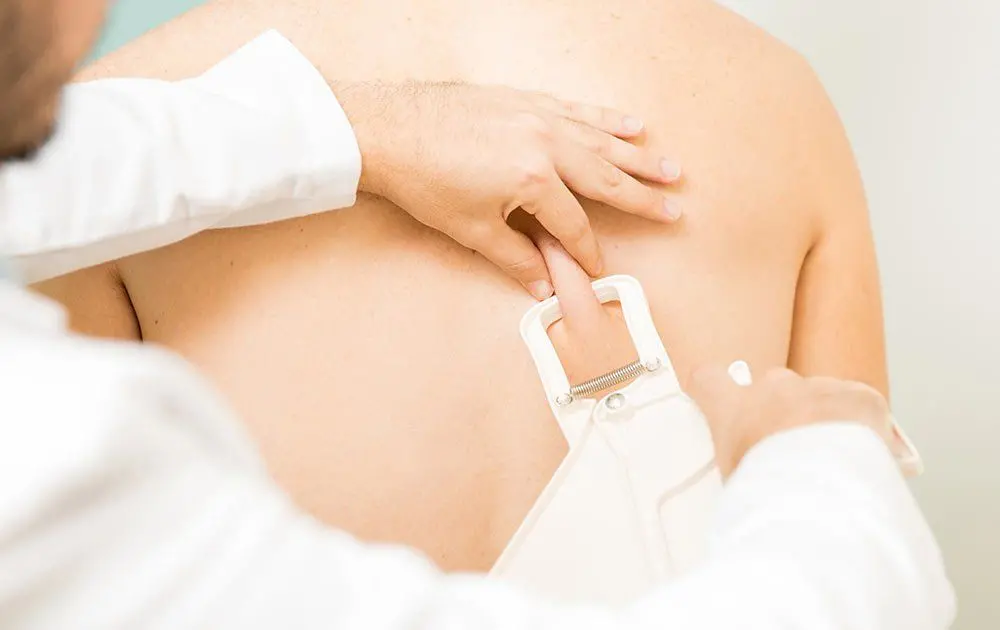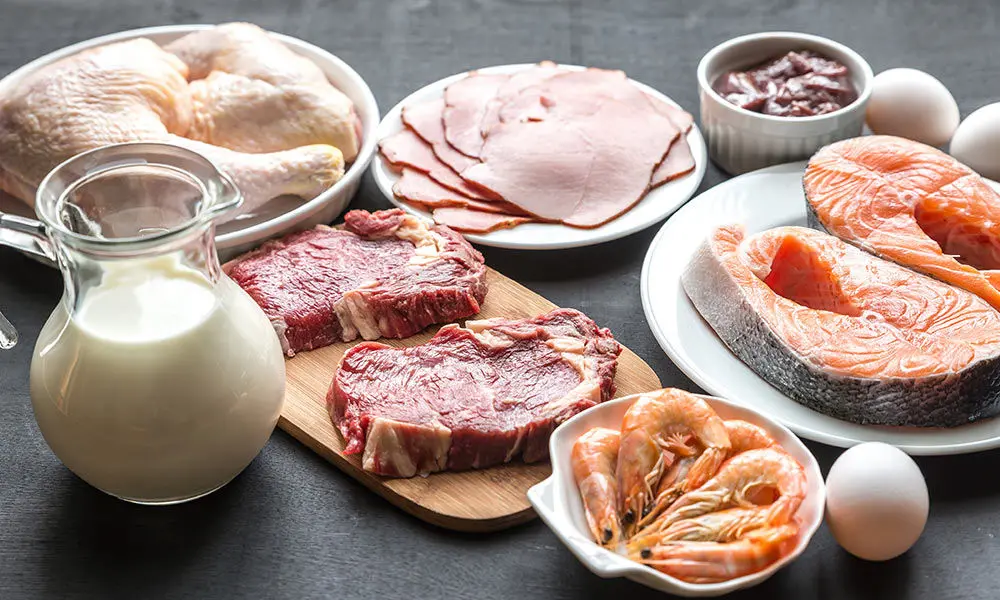Did you set a weight loss goal at the beginning of the year?
Now months later, you’ve done the work, you’ve eaten right, but your scale doesn’t show a success. You haven’t lost the 10, 20, or 30+ pounds you wanted to shed?
Maybe you’ve more recently decided you want to lose weight, and this time it is going to be different. Is it though?
Are you sure you want to lose weight?
Does the number on the scale really matter?
Well, if you’re calculating a prescription drug dosage or anesthesia, it sure it does, BUT, if you’re concerned about fat loss or being more healthy, it doesn’t.
What your scale says is far less important than your waist and girth measurements, or how your clothing fits.
So is an obsession with bodyweight really the answer to being healthier or aesthetically more pleasing? NO!
And while I’m on the subject, let’s please get away from the idea that exercise is the first step in fat loss. It’s not! Dietary intake is far more important than exercise when it comes to losing fat. I can’t stress that point enough because you really can’t out-train a bad diet.
Glynn’s Guide:
Takeaways That Won’t Fail You
- How your clothing fits is a better indicator of fat loss than the scale.
- Strength training and getting enough protein are the two best ways to preserve muscle tissue while losing fat.
- You’ve heard it a thousand times, you cannot spot reduce fat.
- Make sure you are in a fed state when doing high-intensity exercise.
- What you eat is far more important than any amount of exercise you do for weight loss. I’ll say that almost a million times before I die!
- Very few supplements have a substantial impact on fat loss. Stick to a quality meal plan and properly timed exercise.
Weight Loss Can Be Attributed to Any Number of Things
Sure if you lose fat you will lose weight. However, if you’re measuring success in pounds lost, you’re my be actually measuring:
- Muscle loss
- Water loss
- Did you weigh yourself at the same time of day?
- How recent was your last meal?
- Are you wearing all the same clothes on the scale?
Start with Your Goal and Work Back
What you see on a scale is muddled information. In fact, weight loss may even be counterproductive to your actual goal. Most of the time your goal when changing your diet or exercise regiment (or both) is not to lose weight. You may SAY they want to lose weight. However, you should be much more specific in identifying your goal. Such as:
- Look better at the beach this summer
- An upcoming event – i.e. weddings
- Your clothes to fit better
- Feel more energetic
- Lower your cholesterol
- Control your diabetes
- Not end up like your “Uncle Rick” who was severely overweight and died of a heart attack.
All of these goals could be achieved without losing any weight. You may even gain weight. That said, to achieve these goals you’re almost certainly going to have to lose fat.
Confused? That’s okay, we’re just getting started. It’s not as crazy or circular as it sounds.
Muscle Weight vs. Fat Weight
You and I both know you’ve heard it before…
The old adage that muscle weighs more than fat.
Well, it holds true and is legitimate. The denser the tissue, the more it can weigh in a small place.
Muscle is more dense than fat. So a 1-inch by 1-inch cube of fat will weigh less than the same size cube of muscle.
Easier to visualize is just the space that a pound of fat versus a pound of muscle takes up. While they weigh the same, a pound of muscle takes up a lot less space (it is also smooth rather than lumpy).
What are the Best Methods for Calculating Body Fat
If you’re unwilling to go through cremation, which I hope is the case, there are a few unrealistic options that require connections or too many greenbacks (i.e. underwater weighing or the bod pod).
The most realistic, if you’re willing to be pinched, is skin caliper executed by a seasoned professional (below).
Please don’t rely on bioimpedance. Those are the scales that tell you your weight and percentage of fat. They’re grossly inaccurate.
But, seriously, just gauge how your clothing fits. Keep it simple, amigos!
Active or Inactive Tissue
Fat tissue is essentially inactive except for a small amount called brown fat that has some functions beyond the scope of this article. So, in other words, adipose tissue (or fat) doesn’t contribute anything except caloric storage to our being. Last I checked, there are very few reasons in today’s modern society where stored calories are beneficial unless you’re concerned about some type of apocalypse.
Muscle, on the other hand, is active and requires energy. That’s a good thing.
So it is important you maintain the muscle we have (even put more on), to achieve your true goal.
Are You Catabolizing Muscle to Lose Weight?
Are you losing weight but not fat? Sounds counterproductive, doesn’t it?
One major problem you can create by focusing on losing weight rather than the fat loss is you may be sacrificing muscle. So that weight loss isn’t from fat, but muscle instead. This creates two problems:
- You’re increasing your body fat percentage which is unhealthy
- You slow your metabolism which is counterproductive
How does this happen?
If you’re doing high-intensity cardiovascular work (most types of aerobic exercise) and not getting enough calories, you will use some of the protein in muscle for a process called gluconeogenesis. Your body does this to make sure you have enough fuel for your brain. This is a really important note.
So, let’s put that in a simple perspective… you’re exercising intensely, you skipped your first meal and ate very little the day before. Your muscle and liver glucose stores are tapped out and your exercise intensity is too high for beta-oxidation (fatty acid breakdown). So what’s the next alternative? You got it, MUSCLE!
If you’re on a very low carbohydrate meal plan, then you’re likely getting enough fats and protein to prevent muscle catabolism (if your calories are high enough).
If you catabolize muscle, sure you may be losing weight but not fat. So you’re just going to end up skinny fat.
Skinny Fat, Losing Weight but Not Fat
We all know this person who looks skinny but is out of shape and can still pinch fat where they don’t want there to be fat. Typically, this person weighs less, but they’re weak and certainly lack the muscle to help metabolize energy throughout the day and night. They essentially losing weight but not fat.
This is easily preventable by strength training and getting enough protein in one’s diet.
Once again, the number on the scale isn’t a “tell-all”. This is a great example of someone who may weigh less, but is not less fat (the real problem).
So, How Do You Preserve Muscle?
Number one way to maintain your muscles… keep using them! Use it or lose it! Strength training is something everyone should participate in to maintain strong, flexible postural, stabilizing and global muscles.
That said, avoid intense exercise when your liver and muscle glycogen stores are low. Make sure you have fuel for the exercise planned.
Secondly, you need to obtain adequate levels of protein in your diet to build and maintain muscle. Regardless of whether you’re an omnivore, carnivore or herbivore.
Protein is the only macronutrient we consume that contains nitrogen. Nitrogen is an essential building block of muscle tissue (all biologically active tissue for that matter).
So, How Much Protein?
Well, that’s a loaded question. Requirements are a different number based on an individual’s:
- Activity level
- Body composition
- Microbiome
- Goals
- Amount of carbs and fats currently being consumed
So, we can’t quantify without knowing the other variables.
How Do We Burn Fat
Now, here is a really great question and it’s one I could spend hours discussing.
The cellular fuel system that deals with burning fat are a really slow system. It’s so slow that it barely keeps up with intense activity most people do to “burn fat.” It’s called beta oxidation and is the system used to extract necessary energy from the fats we have stored.
So When are We Burning the Most Fat?
If you guessed during sleep based on it being a slow system, you would be correct.
So just remember this; at rest, we are burning the most fat. During intense exercise, you’re using blood glucose, muscle glycogen, liver glycogen, and muscle tissue if your glucose/glycogen stores are low.
I feel obligated to mention the oxygen deficit that occurs after intense exercise (i.e. the excess calories burned for a certain period after you stop exercising). It’s real, but the total burned is negligible compared to the excess calories that many consume throughout the day.
Again, controlling what we consume is more important than the exercise executed.
Read more on how to lose fat here.
Where is Fat Burned First in Our Body?
Overall, fat is burned systemically (i.e. from all over the body).
But it starts in intramuscular fat. Think about the marbling of meat that you eat. That’s intramuscular fat. That source is closest to the “cellular machines” that use it as a fuel source.
The rest is around organs, and the subcutaneous layer (directly under the skin) we all try to minimize.
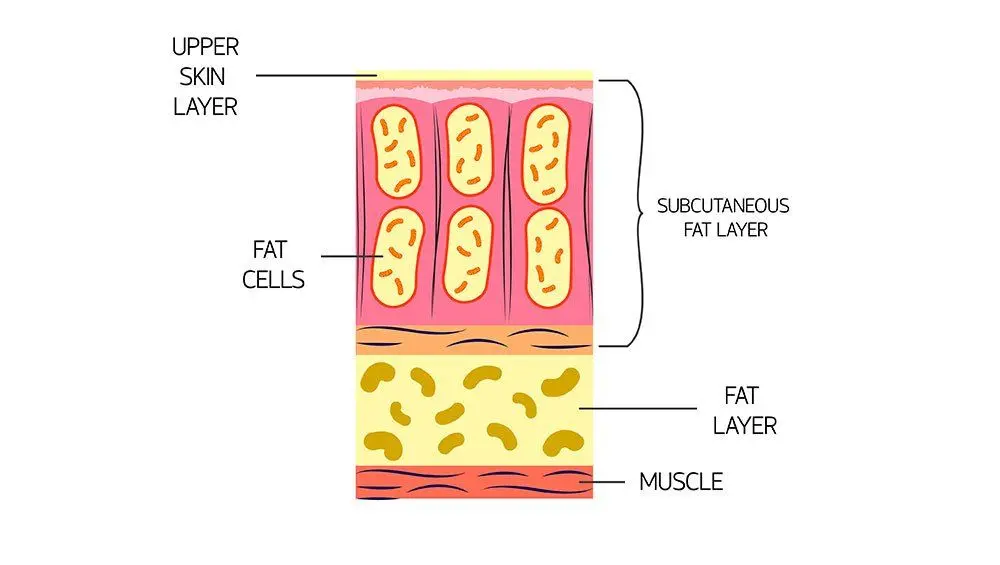
Does fat in particular regions present more potential health problems?
Where you have fat on your body absolutely matters.
Abdominal fat is linked with more potential ailments and complications than most other regions. It’s also some of the last to go if your male. While adipose residing near the hips is more common in females.
That’s simply a result of the hormonal differences between men and women. Nothing you can do about that issue. Sorry, you can’t control where the fat goes.
Can I Spot Reduce to Lose Fat Directly From Problem Areas?
You cannot spot reduce. That is worth repeating, you cannot spot reduce. You cannot choose where you lose fat.
This is very important because if your exercise regime is built around losing fat in a specific area, you will fail. Which will lead to frustration, and most likely ultimately quitting.
Recall the section on “How and when do we burn fat.” If we could control that without the use of exogenous hormones or cosmetic surgery, we’d all be participating.
So all that core work someone does to see their abdominal muscles isn’t doing what they think it’s doing.
At least they’ll have a strong core! Which is still helpful even if there’s a layer of adipose tissue over top. That said, strength training is a superior way to burn more fat over the long haul.
How Can You Preserve Muscle While Losing Fat?
Let’s cover one of the previous sections in more detail. Before I spent seven years studying human metabolism at the University of Delaware, let’s just say I was raised by national-level bodybuilders, despite having no ambition to participate in the sport. They taught me more about this subject than any university could even come close to.
That particular experience also taught me to focus my studies on the biochemistry and metabolism rather than nutrition and dietetics. One can’t test in the lab what many of those bodybuilders were doing to themselves on a daily basis. Onward…
Your nitrogen levels must be adequate not to catabolize muscle tissue (i.e. adequate protein levels for your activity level and body weight). Wait until you are in a fed state to do the high-intensity exercises or you may potentially burn muscle tissue.
That’s the last thing you want to do if you’re trying to lose fat and keep muscle. Continue strength training several days a week even when you’re participating in a high intensity, long-duration event (preparation for a marathon, etc.).
Does Building More Muscle Help You Lose More Fat?
You bet it does!
This is one of the lasting benefits of resistance training. Not only will you get stronger and more healthy from your workouts, but the lean muscle you gain will have lasting benefits even when you aren’t working out. Including losing fat.
Muscle is a biologically active tissue that requires energy. Read that as muscle eats some of the calories you consume.
This doesn’t mean you can gorge yourself with junk food, but it will use some of the energy you’re already eating. Once again, please keep the strength training in your regimen!
This is where losing fat, gaining weight, and reaching your true goals can all intersect. Let’s say your goal is to drop down two dress sizes.
With proper nutrition and strength training, you could:
- Gain eight pounds of muscle
- Lose six pounds of fat
- Net gain of two pounds of weight
- Still achieve goal of going down two dress sizes you wanted to be
- Bonus, the additional muscle will make it easier to maintain your goal
Are There Any Supplements That Are Worth the Money to Help?
Yes! Supplements can absolutely help you. None better than these two:
- Protein supplements (meal replacement shakes)
- Creatine
These are the two best supplements for conserving muscle tissue as well as building new muscle tissue.
However, don’t get too caught up in a lot of the supplements on the market. The two listed above will have a substantial effect, while many of the other supplements will have negligible to no effects. Only spend your money on supplements that will give you a good return on investment.
Otherwise, it’s not worth the money.
How Do I Keep Fat Off That I Was Able to Lose?
What good is losing way if you don’t keep it off? Well, that is easier than you think…
- Keep your sugars low or better yet, at zero.
- Maintain consistent strength training.
- If you balance your calories, you can minimize your cardiovascular exercise (unless you love it).
- Keep a log of what you eat, so if you start to see changes you’re not comfortable with, you’ll be able to see where you went wrong. There’s the “old school” in me. I tend to forget there are plenty of apps for just such a thing. Use whatever works for you. Technology is great, but it won’t do the work for you.
Suggestions on Fat Loss
It wouldn’t be right to forgo a few suggestions on fat loss.
- Cut your sugar intake: Be sure to look for hidden sugars in convenience foods.
- Speaking of convenience… minimize convenience foods.
- Accept nothing less than 8 hours of sleep a night (more important than you think).
- Replace some starches with protein: Whether it’s meat or vegetarian based.
- Minimize your alcohol to 1-2 days a week and avoid it before bed.
- Walk first thing in the morning before breakfast for 20 minutes.
- Add 2-3 bouts of high intensity intermittent exercise a week.
Weight Loss vs. Fat Loss: What’s the Real Takeaway?
Fat loss and weight loss are two separate goals, measured in very different ways. Losing weight can be attributed to a number of variables while losing fat is very specific.
Unless you’re in competitive sports with weight classes, such as wrestling or boxing, losing weight is rarely your goal.
Take time to identify your goals. If you’re like most people your goals probably fall into something like better health, a smaller waist, or just to feel better or more energetic. Simply losing weight won’t get you to these goals. However, specifically losing fat will.
Stop relying solely on a scale as your primary means of quantifying your healthy weight and start paying attention to how your clothes fit or body fat percentage. Week to week photos with minimal clothing is also a good gauge.
By adding strength training to your exercise regimen, along with a comfortable level of cardiovascular work, and a healthy meal plan with adequate amounts of protein, you can maintain lean muscle tissue and shed just the fat.
It’s still a balancing act that even the most advanced fitness enthusiasts have to work towards with plenty of trial and error.
Again, what you eat is far more important than any amount of exercise you do for fat loss. I’ll say that a million times before I die!
Also, remember that you lose the fat systemically (all over) rather than from specific areas, no matter how you “target” your exercise. Besides, the majority of fat is burned at rest anyway.
Supplements can help, but be overly critical and stick to the tried and true with a solid return on investment.
Stay fit and healthy my friends!
FAQs
Will fat loss reduce weight?
Yes, unless you add an equal amount of muscle tissue. This is a healthier situation to be in than just losing fat.
Why is fat loss is slow?
If only it was rapid! Your body will always try to maintain a state of homeostasis. You’re always using fat as well as the other fuel sources simultaneously. But just in different ratios based on your fed state, energy expenditure and predominant fuel source available. Even in a perfect scenario, beta-oxidation (the mechanism of fat burning) is a slow process.
Can fat loss be targeted?
No, it cannot. We burn fat systemically. There’s more to it, but it’s beyond this article. You can learn more in my article How to Lose Fat: When Does Your Body Burn the Most Fat?.
Fat loss without workout?
Yes, you can lose fat in a caloric restriction without exercise. But I suggest strength training to help maintain lean active muscle tissue while losing fat. Not just watching the number on the scale go down.
Burning fat versus sugar?
Sugar is the preferred fuel source for most metabolic reactions in our body. And there are far fewer metabolic reactions to extract energy from sugar, so it’s a faster source. We burn the most fat at rest and during sleep.
Research and Resources on Weight Loss vs. Fat Loss
Frederick F. Samaha, M.D., Nayyar Iqbal, M.D., Prakash Seshadri, M.D., Kathryn L. Chicano, C.R.N.P., Denise A. Daily, R.D., Joyce McGrory, C.R.N.P., Terrence Williams, B.S., Monica Williams, B.S., Edward J. Gracely, Ph.D., & Linda Stern, M.D., A Low-Carbohydrate as Compared with a Low-Fat Diet in Severe Obesity, N Engl J Med 2003; 348:2074-2081
William S. Yancy Jr., MD, MHS; Maren K. Olsen, PhD; John R. Guyton, MD; Ronna P. Bakst, RD; Eric C. Westman, MD, MHS, A Low-Carbohydrate, Ketogenic Diet versus a Low-Fat Diet To Treat Obesity and Hyperlipidemia: A Randomized, Controlled Trial, Ann Intern Med. 2004;140(10):769-777.

